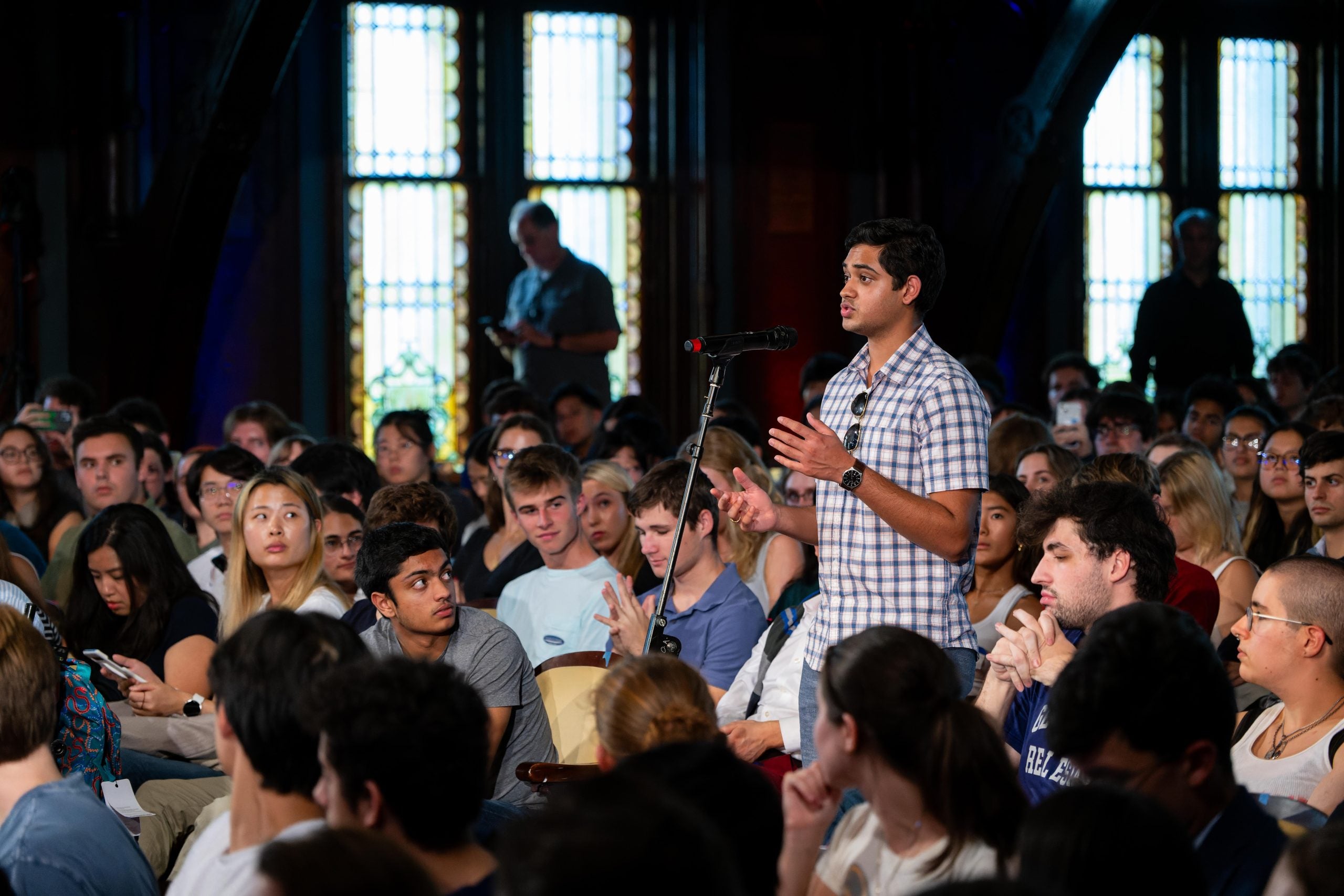Building bridges: GU Politics’ mission to break polarization
Georgetown’s Institute of Politics and Public Service plays a critical role in preparing future political leaders to push through toxic polarization for the common good.
Dean Maria Cancian is on a mission to make the McCourt School the most inclusive public policy school in the country by increasing racial, geographic, socioeconomic and ideological diversity within our community.
At the Georgetown Institute of Politics and Public Service (GU Politics) — often called by Dean Cancian the “jewel in the crown” in McCourt’s efforts for greater ideological diversity — this mission is key to preparing future political leaders to push through toxic polarization for the common good.
Breaking down divides
Founded in 2015 by Executive Director Mo Elleithee (SFS’94), GU Politics has become not only a staple on Georgetown’s campus but a nationally recognized Institute of Politics — one committed to creating a space that bridges divides and finds common ground.
On a typical day, you might find a group of students returning from interviewing former Governor Larry Hogan (R-Maryland) for the Institute’s student-run podcast, “The Fly.” Or walk into a room packed with both Democrats and Republicans for a candid discussion being led by U.S. Senator Elizabeth Warren (D-Massachusetts), or see an aspiring journalist having lunch with an active member of College Republicans.
Elleithee spent most of his career as a Democratic strategist, and while he holds his own views, he maintains civilized discourse is not about always agreeing on issues or changing minds.
It’s okay to have partisan views and opinions. Our goal is not to end partisanship, but to help students find ways to work through it productively.
Mo Elleithee (SFS’94), executive director of GU Politics
A front-row seat to public service
The Institute’s fellows program is a key example of putting this mission into practice. Every semester, GU Politics welcomes six renowned political practitioners as GU Politics Fellows. Throughout their time on campus, the Fellows host off-the-record discussions where they share insights from their professional experiences and converse with students on topics of the day, as well as offer mentorship opportunities.
Since its launch, the Fellows program has attracted leading experts from across the ideological spectrum, including PBS NewsHour co-anchor Amna Nawaz, Americans for Tax Reform President Grover Norquist, former White House Press Secretary Jen Psaki, former U.S. Sen. Doug Jones (D-Alabama), former U.S. Rep. Ileana Ros-Lehtinen (R-Florida) and more. But the Fellows program is just the tip of the iceberg.
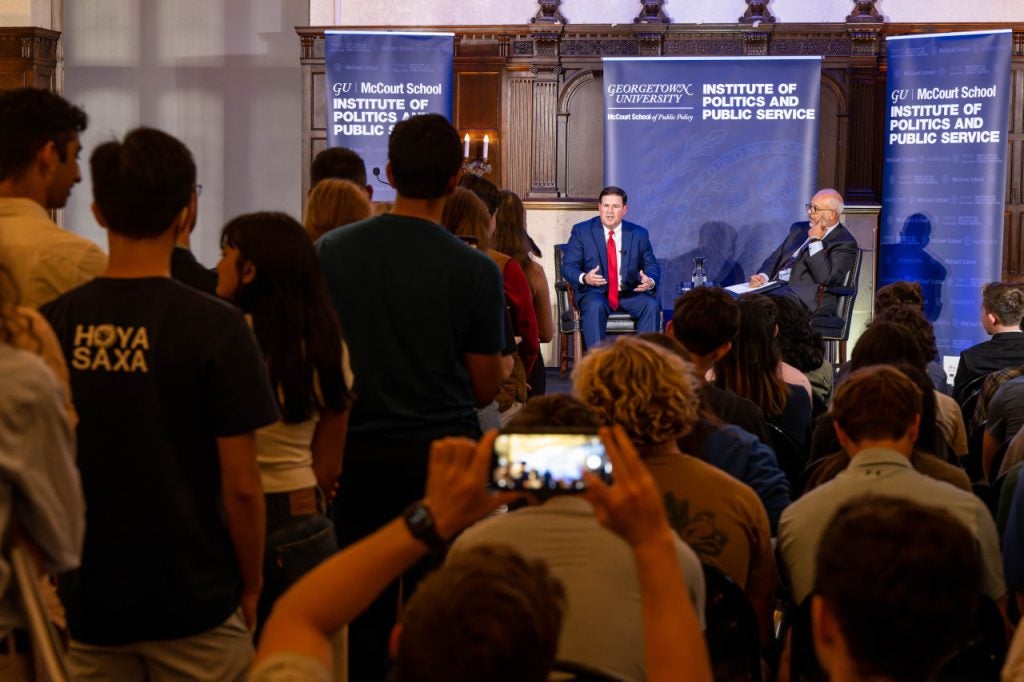
Over the years, the Institute has welcomed hundreds of marquee speakers to the GU Politics Forum. The diversity of Forum events GU Politics puts on is astonishing, even for an institution such as Georgetown. In October 2022 alone, both Transportation Secretary Pete Buttigieg and former Vice President Mike Pence spoke with students on campus, filling historic Gaston Hall.
Just a month prior, Republican Governors Association Chair Governor Doug Ducey (R-Arizona) and Democratic Governors Association Chair Governor Roy Cooper (D-North Carolina) engaged with students on back-to-back nights to discuss the importance of gubernatorial races in the 2022 midterms.
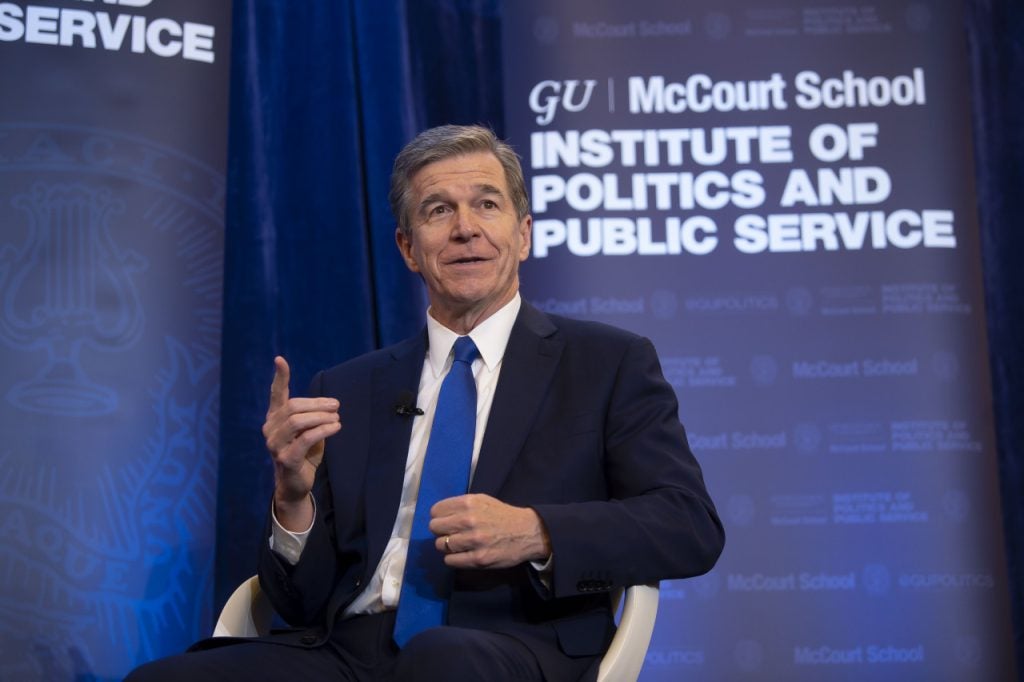
Other GU Politics speakers have included President Bill Clinton; House Speakers Paul Ryan and Nancy Pelosi; Senators Mitt Romney (R-Utah), Dick Durbin (D- Illinois), Tim Scott (R-South Carolina), Bernie Sanders (D-Vermont), Marco Rubio (R-Florida) and Elizabeth Warren (D-Massachusetts), among others. True to the GU Politics mission, every speaker took tough questions from Georgetown students.
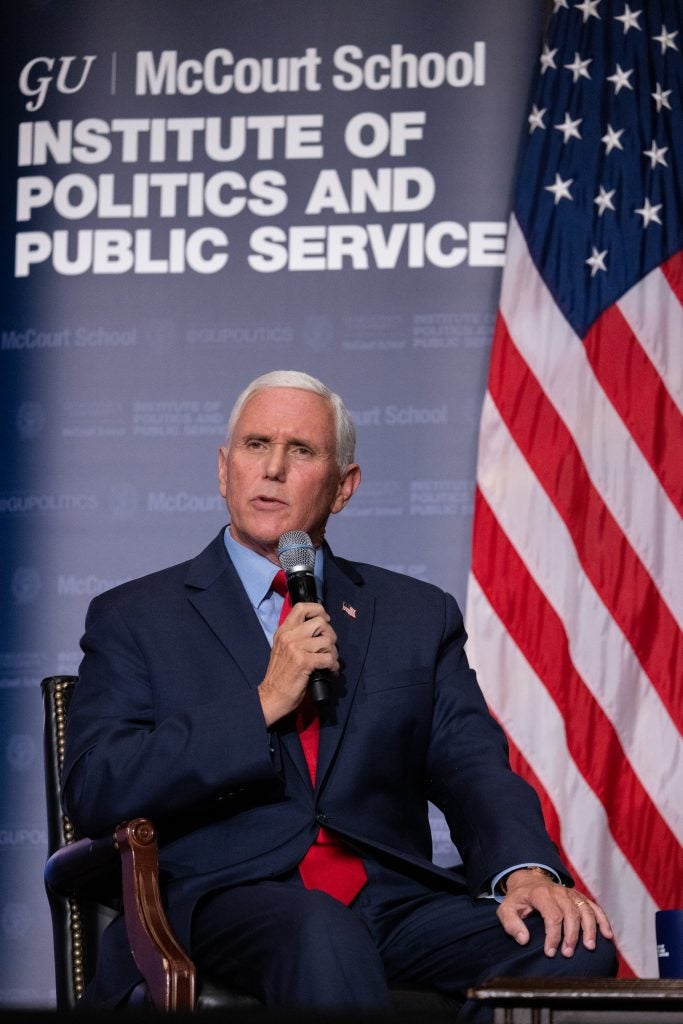
Polling voter attitudes on polarization
The Institute’s impact in tackling polarization extends far beyond the Hilltop. In 2019, GU Politics launched one of the first national polls tracking voters’ attitudes on civility and polarization in politics.
Over the past four years, the GU Politics Battleground Civility Poll — conducted by Republican pollster Ed Goeas, a former Fellow, and Democratic pollster Celinda Lake — shows voters are pessimistic about the current level of polarization in politics and that they overwhelmingly prefer political leaders who find ways to work together through compromise, rather than ideological warriors.
The poll has been covered in print and television media outlets across the country, placing GU Politics at the forefront of the national conversation on polarization and civility in politics.
Popping filter bubbles in the U.S. and abroad
In 2020, GU Politics took a group of undergraduate and graduate students to Des Moines for a behind-the-scenes look at the Iowa Caucuses. In 2016, the Institute organized trips to both the Democratic and Republican National Conventions, and plans are underway to attend both national party conventions in 2024.
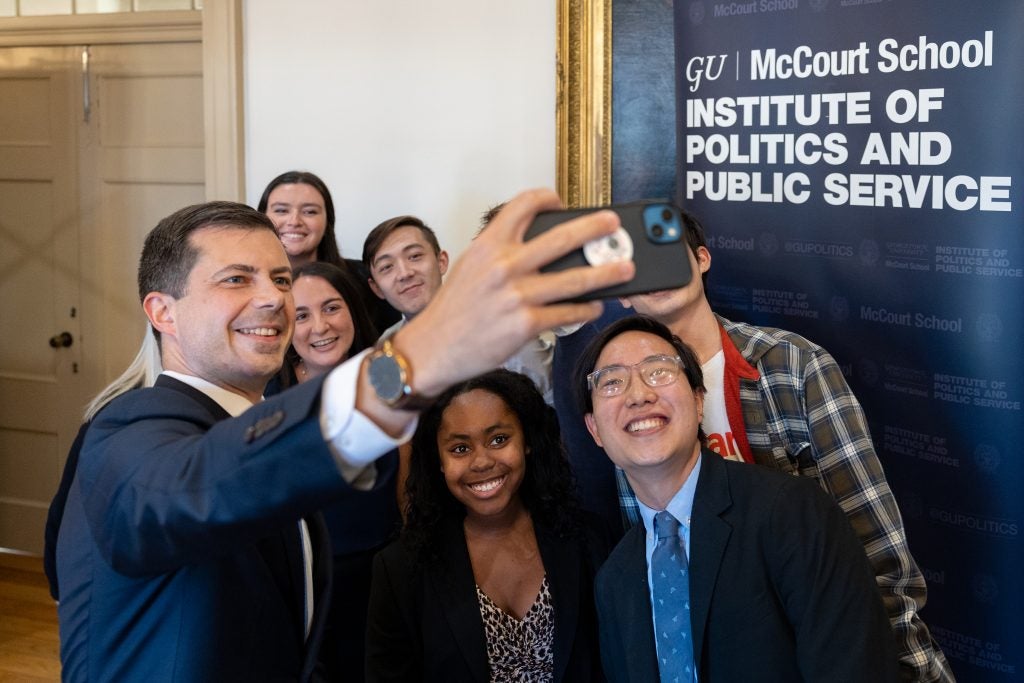
GU Politics has taken these efforts global, leading groups of students to observe elections and the political process in the U.K. and Mexico. On each of these immersion trips, students met with operatives, analysts and candidates from across the ideological spectrum to get a better understanding of all sides.
As another school year and presidential cycle approaches, it’s clear the work of GU Politics is more important than ever. Through inclusivity stems new opportunities to foster civility and respect in our politics. And it all starts on the Hilltop.
